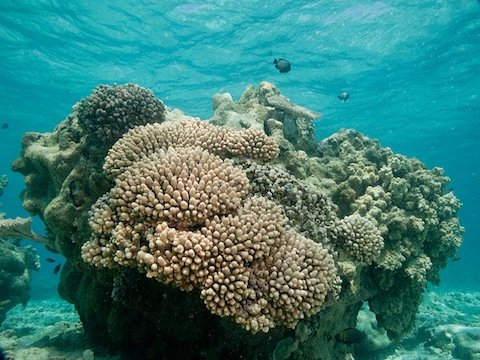The past might be the key to foresee the future. It must have been the opinion of the international team of researchers that recently published an article in Science about ocean acidification, an important topic often neglected when taking into consideration climate change.
They found out that the oceans all over the world might actually turn acid faster than they did during the four major extinctions occurred in the last 300 million years, when the effect of a natural increase of carbon caused global temperatures rising. The study is the first of its kind and realized a deep analysis of the geologic record for evidence of ocean acidification over the last 300 million years.
The oceans are an important component of the natural carbon cycle: acting like a sponge, they remove excess carbon dioxide from the atmosphere; the gas reacts with seawater to form carbonic acid, which dissociates in bicarbonate ions and hydrogen ions.
Carbonic acid is naturally neutralized by fossil carbonate shells on the seafloor. But if this process is too fast, it may cause an abrupt decrease of pH and therefore ocean acidification. And the consequences could be dramatic: if massive amount of carbon dioxide goes too quickly into the oceans, it can clear out the carbonate ions used by corals, molluscs and some plankton organisms for reef and shell – building. That is what is exactly happening now; according to scientists, in the last hundred years, carbon dioxide in the atmosphere has risen about 30 per cent, shifting from nearly 285 parts per million (pre – industrial level) to the current 393 parts per million, while ocean pH is estimated to have decreased by 0.1 unit, to 8.1.
“During past ocean acidification events new species evolved and replaced those that died out”, said Bärbel Hönish, lead author of the study and paleo – oceanographer at the Columbia University’s Lamont – Doherty Earth Observatory, “life was not completely eradicated. But if anthropogenic carbon emission continue at the current rate, we may witness the lost of important organisms, such as corals, oysters, salmon”.
Read all the outcomes of the study at the Earth Institute Columbia University website.
Photo by USFWS Pacific




